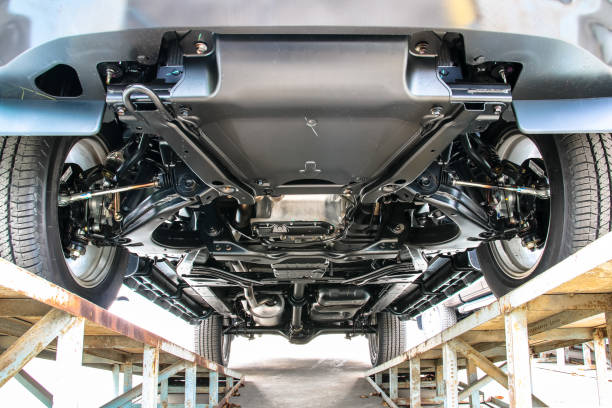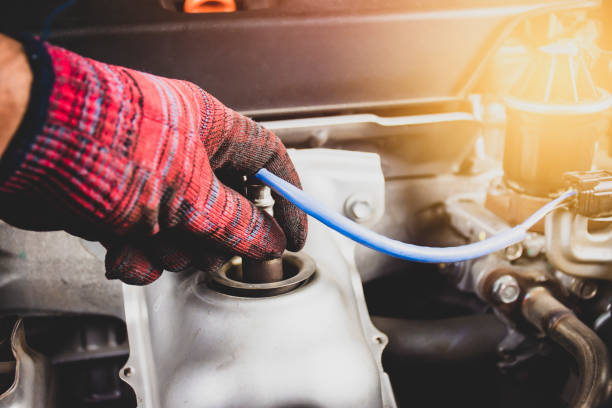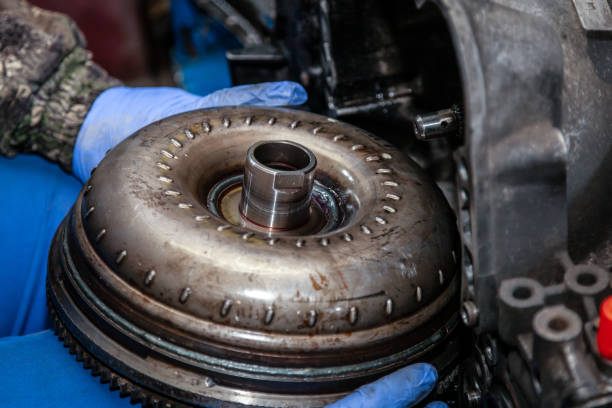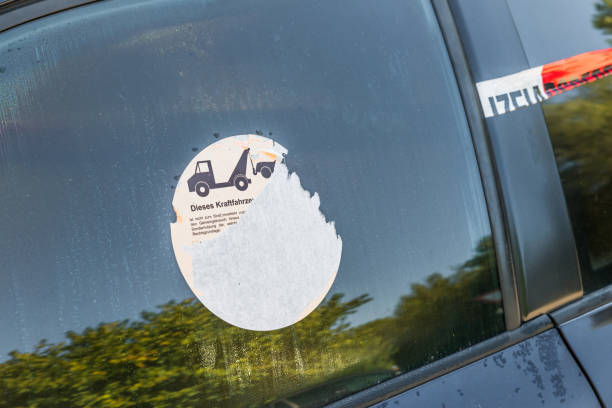With many complex systems all working together to keep your car running, it can be difficult to pinpoint which system is causing your car to turn off while you are driving. However, there are some common causes, and some of those are very simple to fix. So, if you’d prefer to not be stuck on the side of the road helplessly looking under the hood of your car, read on.
Reasons why your car may turn off while driving
You have run out of fuel
Yes, although the most obvious one, this is the most common reason that causes vehicles to cut out unexpectedly. Check the fuel gauge on your vehicle’s dashboard, and make sure that it is above the “E” mark. If it is, there is still the possibility that your fuel sensor has become faulty, meaning that you have actually run out of fuel, but your car is still telling you that there is petrol in the tank. Try remember when you last filled up the tank, and how far you have been driving since then. If you have filled up recently, then this may be an indication that your fuel sensor has become faulty.
Your battery is faulty
A car’s battery is essential to keep the vehicle running. In the old days, your car may have continued to run without the battery connected, but most modern vehicles today have many complex systems that require power to keep the vehicle running. One of the most common issues here is that the terminal on one of the sockets on your battery has become loose, and is no longer making a good connection to the battery. This may happen due to vibration while driving, hitting a bump in the road, or through corrosion of the cable or terminal joint. When a connection to the battery is faulty, the alternator can no longer charge the battery, and when there is insufficient power being generated by the alternator while your car is running, it will cause your vehicle to cut out unexpectedly.
Your alternator is faulty
Following on from above, your alternator is the component that charges your battery. If the alternator becomes faulty, it will cease to charge your battery. After a few days, your battery will run completely flat, and it will no longer be able to provide the power that the car needs to start the engine and keep it running.
Your car has overheated
Your car most probably has a liquid cooled system which relies on water being cooled in your car’s radiator by the air stream as your car moves. The cool water is then circulated around the engine to keep it cool as the combustion process produces extremely high temperatures in and around your car’s engine. When there is a leak in this system, the thermostat becomes faulty or the water pump fails, and the engine will no longer be cooled properly. In this case, the digital engine management system should turn your engine off to prevent permanent damage to the pistons, and this may be the cause of your car dying unexpectedly. Even when your car is stationary, the engine management system should turn on the fan situated just in front of your radiator to ensure that your engine can remain cool when the car is stationary. When this fan seizes or becomes faulty, your car may overheat at low speeds or when in heavy traffic.
Your fuel injection system is faulty
Your car has a complex mechanism of injecting fuel at high pressure into each cylinder thousands of times per minute. Not only does this system use very fine filters and hoses, but it also relies on the pressure generated by the fuel injection pump. When this pump stops operating or a fuel filter becomes critically clogged with a low quality of fuel, your car will no longer be able to provide the fuel required to continue the combustion process in your engine.
Steps to take if your car dies while driving
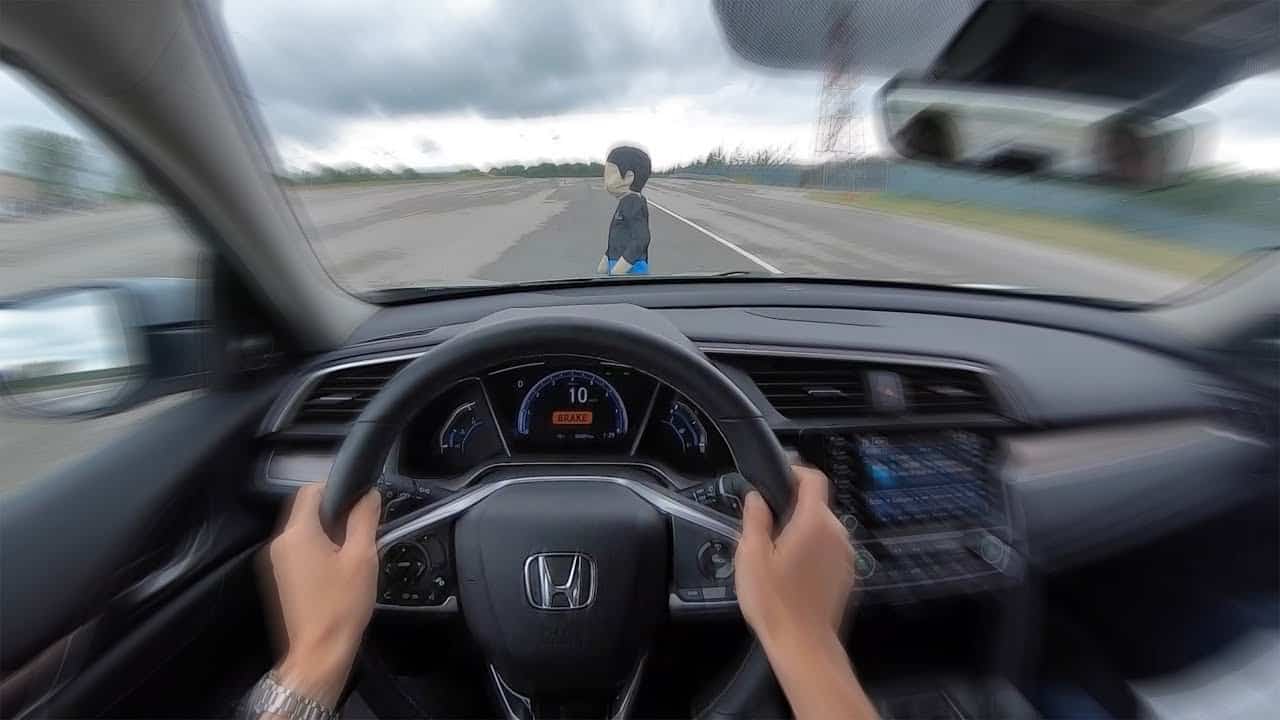
Photo by: Winding Road Magazine – https://www.youtube.com/watch?v=jvxFFKv80H8
When your car cuts out, be aware that you will quickly become a hazard to other drivers who are not expecting you to slow down or stop. This can be particularly dangerous at night as your car may not have any lights. Here is what you should do:
1. Guide your car off the road immediately (while it is still in motion).
Then you should retreat from your car to a safe distance, away from the road and oncoming traffic. If your car has died in the middle of the road, you should call for assistance immediately. Only leave the vehicle if you see that it is safe to do so.
2. Turn on your hazard indicators (if possible), and leave your lights on.
Your car may have died completely, but attempt to leave all safety lights on.
3. Check your fuel and temperature gauge.
Check to see that you have fuel, and that your car’s engine has not over heated (your temperature gauge should always be in the middle, between hot and cold).
4. Attempt to restart your car.
If your car has fuel and has not overheated, you may attempt to restart your car.
5. Call for assistance.
If your car will not restart and you are unable to resolve the issue, you should call for roadside assistance. Phone your car insurance first to see if you may have this service already as part of your car insurance.
How to fix the problem
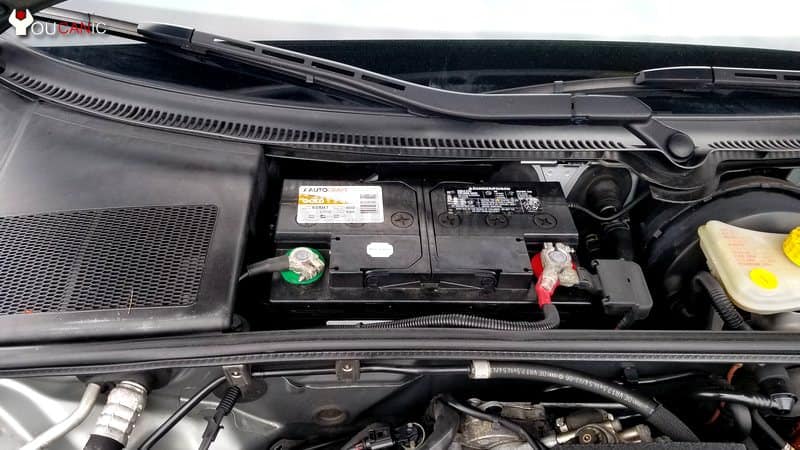
Photo by: https://www.audidenver.com/
If the problem is not serious, you may be able to fix the issue yourself. Providing that your car has fuel in the tank, check the following items first to see what may be causing the problem:
Check the terminals on your battery
Check to see that the terminals are making proper contact with the battery. If they are loose, tighten the nuts on each lug, and attempt to restart your car. Your battery may have completely died, in which case you will need to jump start your car, manually charge the battery using an external charger, or replace your battery.
Check that your ignition key is not being obstructed
An older car may have a slightly loose or faulty ignition key. If this is being hindered in any way (possibly by a heavy key ring), remove the obstruction, any place only the ignition key in the ignition.
Check the water level in your radiator
There should be a metal cap situated under the hood and close to the front of your car. Allow your car to cool for 20 minutes, and then remove the cap. Caution – this may be hot! If you cannot see any water inside, you will need to top this up until it overflows.
Check your fuses
It is possible that a fuse may have blown. Open up your fuse box, remove each fuse one by one, and hold each one up to the light. Look for any small breaks in the fuse wire, which would indicate that this fuse needs replacing.
If you can’t find any fault in all of the above items, the problem may be a little more complicated, and it is advisable to take your car to the nearest repair centre.
Car systems that may cause stalling
There are numerous systems responsible for keeping your car running. A malfunction in one of these may cause your car to turn off. The most common systems that will cause your car to turn off are the following:
- The electrical ignition system (battery, fuses, terminals, spark plugs).
- The fuel injection system (fuel pump, injection needles, hoses, filters).
- The cooling system (water pump, thermostat, radiator)
- The electronic engine management system (speed, temperature, engine sensors)
Questions and answers
Why is my car shutting off when I stop?
Your car may be over heating due to a failure in your radiator cooling fan or thermostat responsible for turning this fan on when you are stationary. Your battery power may also be insufficient to provide the power your car requires when it is not assisted by the alternator while you are driving.
Can a dead battery cause a car to die while driving?
Yes, this is possible, particularly if your alternator is faulty, or there is a faulty connection to the battery.
Can low oil cause a car to shut off?
Yes. Oil keeps your car cool, and if your engine senses that it is low on oil, it may turn your car off to prevent overheating or damage to the components. If it does not turn off automatically, low oil may cause your pistons to seize in the cylinders and permanent damage to your engine.





